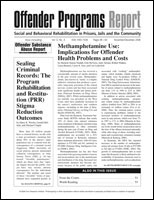CURE: A Case Study of Advocacy and Program Development
Author: Russ Immarigeon.
Source: Volume 18, Number 03, September/October 2014 , pp.35-37(3)

< previous article |next article > |return to table of contents
Abstract:
Forty-two years ago, in 1972, a recently married couple, Charlie and Pauline Sullivan, founded a Texas-based organization with the antiquarian-sounding name Citizens United for the Rehabilitation of Errants. Known more widely through its acronym, CURE, the organization began as a program that provided prison-bound bus rides for visiting family members of incarcerated men and women. Soon, the organization began engaging in advocacy efforts to improve (“reform”) the state’s prison system, and its treatment of prisoners and their families in particular.Keywords: criminal justice reform; building-tender program; nonconfrontational approach; Ruiz v. Estelle; WIC program; Family Unity Demonstration Project Act; Second Chance Act; Federal Prison Work Incentive Act
Affiliations:
1: Editor.